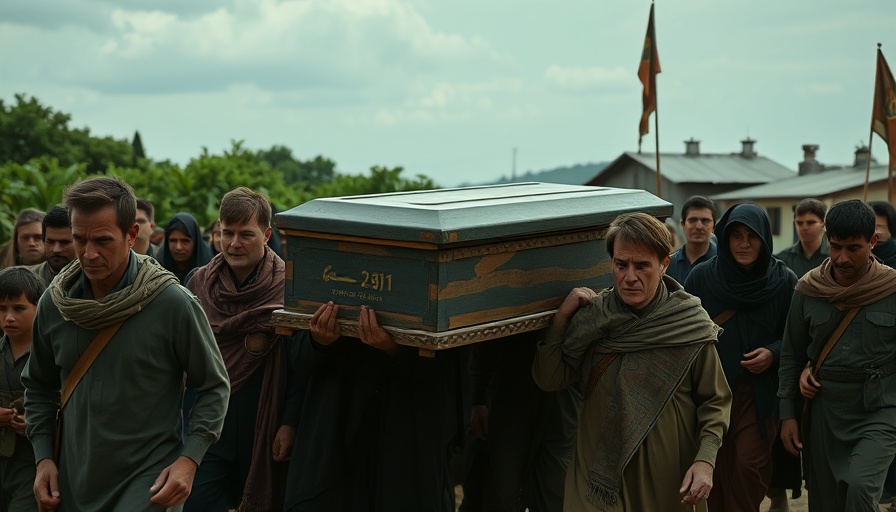
Grieving a Nation: The Funeral of Albert Ojwang
On July 6, 2025, Kakoth Village in Kenya became a stage for collective mourning, defiance, and calls for justice as thousands gathered for the funeral of Albert Ojwang, a local blogger who tragically lost his life under suspicious circumstances in police custody. The atmosphere was palpable, heavy with grief but also ignited by a spirit of resistance. Protesters, many of whom were young men bearing Ojwang's portrait, arrived clad in shirts that declared, "Rest in Power, Albert." This event was not merely a farewell but a rallying cry against the oppressive forces that have plagued the Kenyan justice system.
The Context Behind Ojwang’s Death
Albert Ojwang’s untimely death has struck a chord, resonating deeply with Kenyans frustrated by state violence and police brutality. His story shed light on the pervasive culture of corruption and unaccountable law enforcement in Kenya, where many believe that the system is rigged against them. Following his death, protests erupted nationwide, resulting in tragic violence that left over 16 people dead, marking a dark chapter in Kenya's ongoing struggle for justice.
Protests: A Growing Movement Against Police Violence
The wave of demonstrations sparked by Ojwang's death reflects a mounting dissatisfaction with the government’s response to police killings. These protests have united people from various walks of life, empowering youth to rise against what they perceive as a brutal regime. Lady Justice, often depicted as blindfolded, is now a stark reminder of the failures of the justice system in Kenya.
A Reflection of Broader Issues
Ojwang’s funeral transcended personal loss; it symbolized broader injustices that have long simmered beneath the surface. As Kenyans gathered to pay their respects, they vocalized a shared sentiment that the rights and lives of citizens cannot be taken for granted. Speakers at the funeral called for reforms, insisting that the country’s youth should challenge this status quo.
Community Solidarity: More than a Funeral
The profound turnout at Ojwang’s funeral not only served as a tribute to the life he lived but also emphasized the strength of community solidarity in the face of tragedy. This collective mourning showcased a spirit of resilience within the populace, fostering a renewed determination to advocate for fundamental reforms in police conduct and government accountability.
The Road Ahead: What Next for Kenya?
The aftermath of Albert Ojwang’s death raises critical questions about the future of governance in Kenya. If the government fails to address the systemic issues that have led to such tragedies, it risks further unrest. Youth involvement and advocacy are vital for initiating the necessary conversations toward effecting change. Observers are left pondering whether this incident will catalyze meaningful reform or become another tragic chapter in Kenya’s history.
Conclusion: A Call to Action for Justice
As Kenyans continue to grapple with grief and anger following Ojwang’s death, the imperative for reform resonates more than ever. It is essential for the youth to remain vigilant and active in contesting the injustices that plague their communities. Whether through protests, community engagement, or advocacy, any action can contribute to a larger movement toward accountability and justice.
 Add Row
Add Row  Add
Add 




 Add Row
Add Row  Add
Add 

Write A Comment